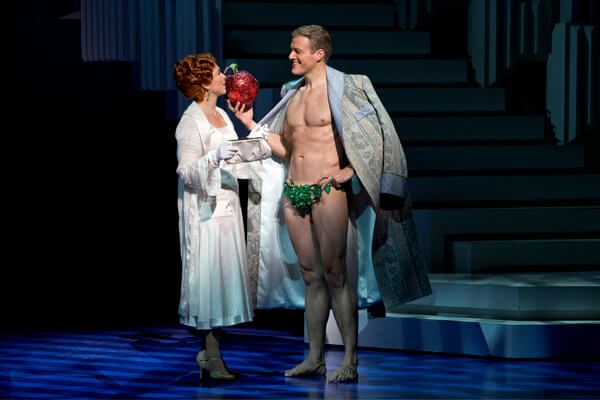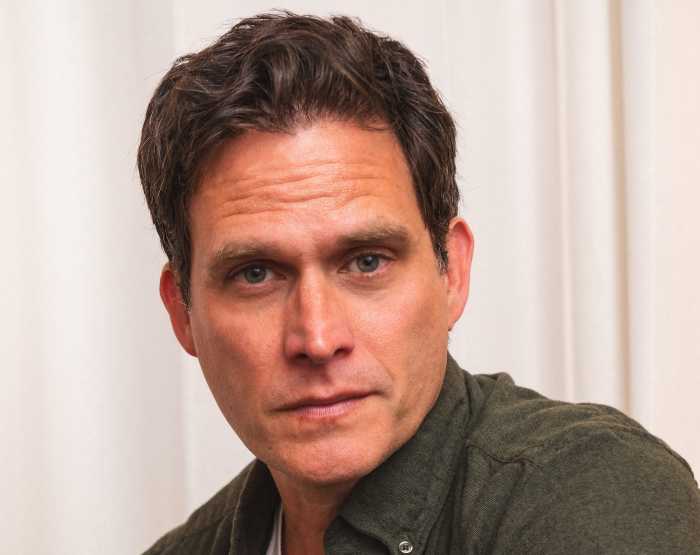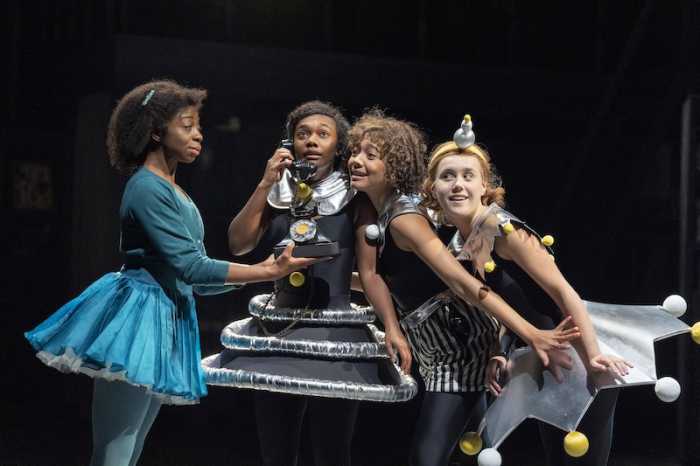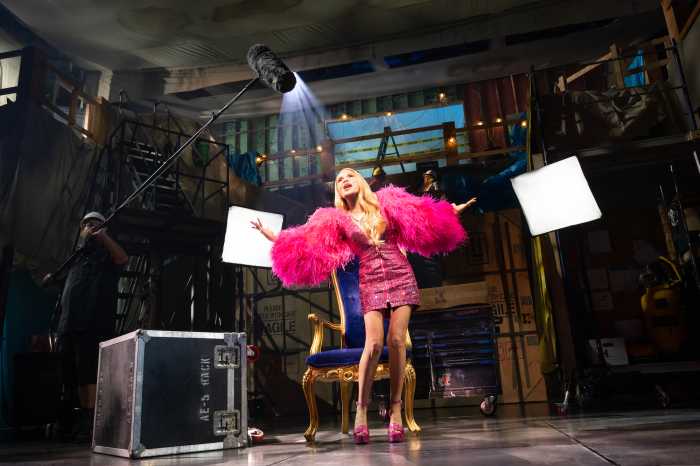Carolee Carmello and Edward Watts in “Scandalous: The Life and Trials of Aimee Semple McPherson,” with book and music by Kathie Lee Gifford, David Pomeranz, and David Friedman. | JEREMY DANIEL
The emergence of the modern evangelical movement as an entertainment and marketing machine can be traced to Aimee Semple McPherson, the early 20th century Hollywood preacher who became a celebrity and sensation. Whether she was seen as leading her flock or merely fleecing them largely depended on an individual’s desire to believe.
There is no question she did good for some, but she was also embroiled in a sex scandal. McPherson was certainly a threat to the mainstream church. She was also the second woman to have a radio license and virtually invented the broadcast preaching business. She fought the Ku Klux Klan and racism. She was complex, caring, corrupt, and above all charismatic, the kind of character who should be at the center of a huge Broadway production — one as epic as her theatrically staged sermons were.
Given this material to work with, book writer Kathie Lee Gifford has unfortunately turned out a conventional, chronological biography that traces McPherson’s life from a girl in a Canadian religious community through the eve of the verdict in her trial for faking a kidnapping to run off to Mexico with her lover. The conceit is that she is giving a “last sermon” in her Los Angeles temple to tell her story.
McPherson is all but unknown to a contemporary audience, though we’re all way too familiar with her descendents — Joel Osteen, Rick Warren, and the lot of them who sell feel-good religion on a la P.T. Barnum in books, on TV, and in mega-churches. In simply telling the story’s established facts, Gifford misses the obvious opportunity to take us inside McPherson so we can understand what drove this pioneering celebrity in the nascent mass media culture.
It’s as if Gifford is so enamored of her subject she is unwilling to show us a darker side or plumb the inherent conflicts in McPherson’s makeup. Instead, the story just plods along. There are no real relationships among the characters and no subplots. The dramatic arc is unsophisticated and robs the piece of the moments that would cry out for songs. In fact, the songs seem simply dropped into the storytelling.
That said, Gifford often writes strong dialogue and knows how to build a scene. Her lyrics are often sharp and funny. The music by David Pomeranz and David Friedman, with additional music by Gifford, is big and bright, but it never really strikes any emotional chords, and where the gospel music should lift up our hearts — at the very least — it feels generic. As with “Leap of Faith” last season, no amount of pumped up energy can give depth to a story when none is there.
Carolee Carmello as McPherson gets a chance to show off her otherworldly pipes. She is one of the strongest singers on Broadway and throws herself into the show as completely as anyone could. Still, Carmello is hampered by the script that forces us to take it on faith that she was able to change lives. Rule number one of playwriting: don’t tell us, show us.
The only other significant role in the show is Emma Jo Schaeffer, the madam turned scribe when she falls under the spirit of McPherson. Roz Ryan turns in a bold performance in the role, even if she is often reduced to an African-American stereotype. Poor George Hearn, who plays Brother Bob, the man who was McPherson’s enemy in the religious community, doesn’t even get a song. Louella Parsons and William Randolph Hearst, two other antagonists, also make appearances. A smarter show would have given these three a number to set them up in opposition to McPherson.
There are love interests in smaller parts. Edward Watts plays Robert Semple, who died of malaria in China after he and Aimee married and went off on a mission. Watts also plays David Hutton, the young man in McPherson’s productions who gets all the Biblical beefcake parts (Samson, Moses, etc.) and is embroiled in her scandal. Watts is a strong singer who has much more Broadway in his future. McPherson ultimately chooses Hutton over the married radio technician Kenneth Ormiston — played with abundant charm by Andrew Samonsky — with whom she flirts recklessly. Unfortunately, aside from one clever second act song, both Ormiston’s and Hutton’s characters are flat and static.
McPherson died of a drug overdose in 1946 and became a footnote to history, languishing in obscurity until Gifford revived her. I was fascinated when this show was announced and had so hoped it would work better. But while the spirit was willing, the show is weak.




































